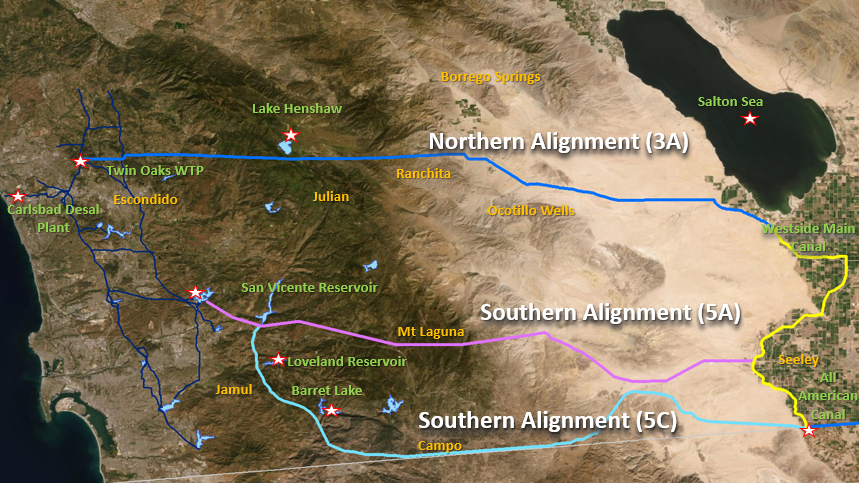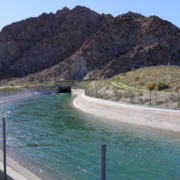Water Authority to Host Public Session on Economics of Regional Conveyance Study
The San Diego County Water Authority will host an online public information session on Oct. 27 about economic considerations related to the proposed Regional Conveyance System. The virtual event will run from 10 a.m. to noon. To reserve a spot, email .
Meeting participants can:
- Learn about alternatives the Water Authority Board of Directors is studying to secure San Diego County’s future water supplies
- Ask the experts about key issues
- Understand the feasibility and costs of building a conveyance system to deliver San Diego County’s Colorado River supplies
- Discuss potential next steps
In June of 2019, the Water Authority’s Board of Directors approved a study of the viability of a new regional conveyance system that would deliver water from the Colorado River to San Diego County and could provide multiple benefits across the Southwest.
Regional Conveyance Study
The Phase A report, released in August 2020, found that building a new conveyance system to transport the region’s supplies from the Quantification Settlement Agreement is cost-competitive with other long-term strategies for meeting the region’s water needs.
At its August 2020 meeting, the Water Authority’s Board decided to continue the regional discussion about the study until November 19, at which time the Board is expected to decide whether to move ahead with Phase B of the study.
To learn more about the Regional Conveyance System Study or to read the executive summary and the full report, go to sdcwa.org/colorado-river-supplies-management.
Potential pipeline routes

A study of a new regional water conveyance system to deliver high-priority Colorado River supplies from the Imperial Valley shows three potential routes to move the water. Graphic: San Diego County Water Authority
Each of the potential conveyance routes would connect to the tail end of the All-American Canal where it meets the Westside Main Canal in the southwest corner of Imperial Valley.




